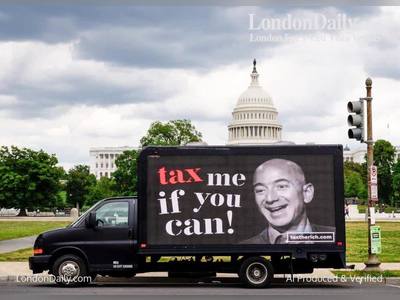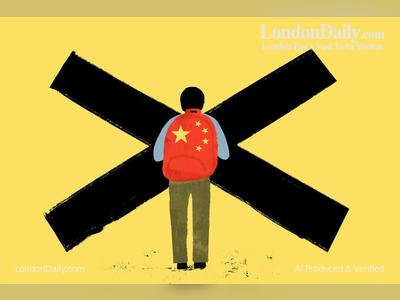John 'Paddy' Hemingway, Last Surviving Battle of Britain Pilot, Dies at 105
Tributes pour in following the death of the esteemed RAF pilot, remembered for his bravery during World War II.
John ‘Paddy’ Hemingway, the last surviving pilot from the Battle of Britain, has died at the age of 105.
His passing has prompted heartfelt tributes from notable figures including Prince William and Prime Minister Sir Keir Starmer.
Prince William expressed his sadness on social media, stating, "We owe so much to Paddy and his generation for our freedoms today.
Their bravery and sacrifice will always be remembered.
We shall never forget them.”
Born in Dublin in 1919, Hemingway enlisted in the Royal Air Force (RAF) in 1938 and quickly became involved in conflicts across Europe, including the Battle of France.
Two years later, he was recognized as one of “The Few,” a term famously coined by Winston Churchill to honor the RAF pilots who defended Britain during the Battle of Britain in 1940.
Prime Minister Sir Keir Starmer noted the impact of Hemingway and his fellow pilots, saying, “Eighty years ago, the courage and determination of Paddy and all our brave RAF pilots helped bring an end to the Second World War.” Starmer highlighted Hemingway's humility, often referring to himself as the “Lucky Irishman” rather than a hero.
Defence Secretary John Healey acknowledged the sacrifices made by Hemingway’s generation, describing him as embodying the courage that defined an era.
During the Battle of Britain, Hemingway recorded significant air combat accomplishments, including the destruction of a German airliner and a Luftwaffe plane.
His combat log indicates that he participated in as many as five sorties in a single day.
He experienced harrowing moments, including bailing out of his Hurricane on two occasions amid fierce dogfights in August 1940.
Hemingway earned the Distinguished Flying Cross (DFC) on July 1, 1941, and was later mentioned in despatches for his service.
His contributions continued post-Battle of Britain, as he served as an air fighter controller during the D-Day operations and later as a commander in the Mediterranean Allied Air Forces, commanding 324 Wing.
Sir Rich Knighton, Chief of RAF Air Staff, conveyed condolences to Hemingway’s family and remarked on their meeting in Dublin earlier this year, calling Hemingway “an amazing character whose life story embodies all that was and remains great about the Royal Air Force.”
Paddy Hemingway remained active and recognized for his military history until his later years.
His son, Brian, reflected on his father’s sense of duty and remembrance for those who did not return from war, stating, “He never felt that there was anything special about him.”
In the final days of his life, Hemingway resided in a care home in Dublin, where he continued to share his remarkable experiences.
His service to the RAF concluded with him attaining the rank of Group Captain, with notable postings including Officer Commanding RAF Leconfield in 1966, and continued to influence and inspire future generations regarding the significance of freedom and sacrifice.
His passing has prompted heartfelt tributes from notable figures including Prince William and Prime Minister Sir Keir Starmer.
Prince William expressed his sadness on social media, stating, "We owe so much to Paddy and his generation for our freedoms today.
Their bravery and sacrifice will always be remembered.
We shall never forget them.”
Born in Dublin in 1919, Hemingway enlisted in the Royal Air Force (RAF) in 1938 and quickly became involved in conflicts across Europe, including the Battle of France.
Two years later, he was recognized as one of “The Few,” a term famously coined by Winston Churchill to honor the RAF pilots who defended Britain during the Battle of Britain in 1940.
Prime Minister Sir Keir Starmer noted the impact of Hemingway and his fellow pilots, saying, “Eighty years ago, the courage and determination of Paddy and all our brave RAF pilots helped bring an end to the Second World War.” Starmer highlighted Hemingway's humility, often referring to himself as the “Lucky Irishman” rather than a hero.
Defence Secretary John Healey acknowledged the sacrifices made by Hemingway’s generation, describing him as embodying the courage that defined an era.
During the Battle of Britain, Hemingway recorded significant air combat accomplishments, including the destruction of a German airliner and a Luftwaffe plane.
His combat log indicates that he participated in as many as five sorties in a single day.
He experienced harrowing moments, including bailing out of his Hurricane on two occasions amid fierce dogfights in August 1940.
Hemingway earned the Distinguished Flying Cross (DFC) on July 1, 1941, and was later mentioned in despatches for his service.
His contributions continued post-Battle of Britain, as he served as an air fighter controller during the D-Day operations and later as a commander in the Mediterranean Allied Air Forces, commanding 324 Wing.
Sir Rich Knighton, Chief of RAF Air Staff, conveyed condolences to Hemingway’s family and remarked on their meeting in Dublin earlier this year, calling Hemingway “an amazing character whose life story embodies all that was and remains great about the Royal Air Force.”
Paddy Hemingway remained active and recognized for his military history until his later years.
His son, Brian, reflected on his father’s sense of duty and remembrance for those who did not return from war, stating, “He never felt that there was anything special about him.”
In the final days of his life, Hemingway resided in a care home in Dublin, where he continued to share his remarkable experiences.
His service to the RAF concluded with him attaining the rank of Group Captain, with notable postings including Officer Commanding RAF Leconfield in 1966, and continued to influence and inspire future generations regarding the significance of freedom and sacrifice.









